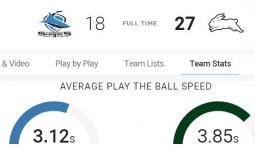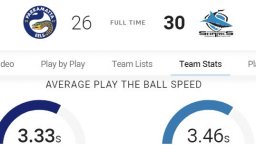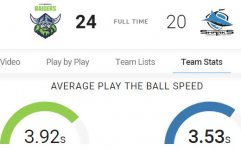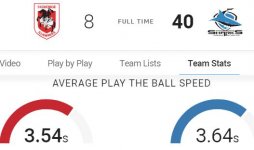The NRL has pitched a plan to resolve rugby league’s contract crisis by introducing three staggered transfer windows which totally revamps the November 1 trade deadline. Sport Confidential can reveal the plan is the brain child of club bosses and has been put to the Rugby League Players Association for their consideration as part of ongoing collective bargaining talks.
The three-tiered plan would include transfer windows which would open depending on how many years a player has held a top 30 or development spot contract.
The plan includes the window opening with:
• At least six years experience free to negotiate with rivals on November 1;
• At least three to five years experience free to negotiate with rivals on April 1;
• Rookies to two years experience free to negotiate with rivals on June 30.
As it stands all players are free to negotiate come November 1. However, this has long been contentious amongst fans.
Under this plan players whose deal expires at the end of next year including Payne Haas, Nick Cotric, Taniela Paseka Chad Townsend, Moses Leota and Dylan Edwards would be allowed to talk to rival clubs from November 1.
However the likes of Hudson Young, Tyrell Sloan Toby Rudolf, Mikaele Ravalawa can not explore other options until April 1.
Whereas rising stars Paul Alamoti, Tolutau Koula and Isaiah Tass would need to wait June 30 before opening discussions with other clubs.
Last year a host of players including Reed Mahoney, Brandon Smith, Marata Niukore and Viliame Kikau signed for rival clubs with a season to go on their contract.
The transfer window remains an ongoing discussion point to finalising the CBA. Players have long supported the current system.
RLPA chief executive Clint Newton said the players union was willing to listen to any proposal but they would be reluctant to agree to any changes without fully investigating the potential ramifications.
“This is a complex problem that has many things that will shoot off it by making a change,” Newton said.
“Therefore it requires far more sophistication to it than only looking at date changes. That is because there are a whole range of things that come with it around anti-tampering and enforcement of rules.”
Newton also pointed out that the competition had never been closer through the opening four rounds, in part because the weaker clubs had been able to strengthen their rosters under the existing system.
“I get it is an issue,” Newton said.
“However, does anyone want to look at that this supposed issue is creating a competition that has never been closer.
“Does anyone want to look at that? Does anyone want to look at the clubs who would have otherwise struggled, good luck trying to go and change your roster around if you only have a few months to do it at the end of the season?
“You’re still going to have speculation, you are still going to have clubs under pressure.”
There is no appetite to implement a draft system.




